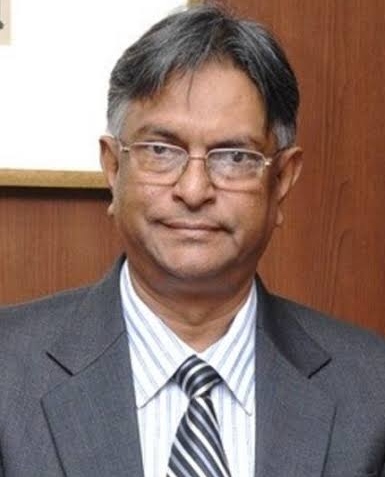SRINAGAR: Vice Chancellor University of Kashmir ( KU) Prof Talat Ahmad inaugurated a week-long e-Faculty Development program on Cloud Computing at KU on Monday.
The program is meant for the faculty members belonging to Computer Sciences, Engineering and Information Technology. In view of ongoing lockdown due to coronavirus pandemic, programme will be conducted online on zoom platform.
Speaking at the inaugural function Prof. Talat Ahmad highlighted the importance of conducting such courses online at a time when the faculty members are not in a position to visit the Human Resource Development Centres and attend the courses physically.
Underscoring the significance of the theme of cloud computing chosen for the programme, Prof. Talat Ahmad informed the participants that in contemporary times when machine learning, data-mining, internet of things and cloud computing are radically changing the way we live, it is prudent to get acquainted about these emerging twenty first century technologies so that we can brace up to future challenges in terms of technological innovation.
Prof. Talat stated that in less than two decades cloud computing has revolutionized the way in which not only large corporations and institutions utilize the internet, but individual users as well. “As we become more and more dependent on our mobile and smart devices, the more we utilize the impact of cloud computing to access information with ease and have unlimited space”, he said.
Prof. Talat congratulated the UGC-HRDC for organizing this course besides a series of international webinar lectures on varied topics that has immensely benefited our student community as well as faculty at home in times of COVID-19 lockdown. He urged upon the office bearers of HRDC to widen the scope of online courses enabling more and more participants to attend.
Welcoming the Vice-Chancellor, Resource Persons as well as the participants, Director, UGC-HRDC, University of Kashmir, Prof. Shabir Ahmad Bhat said “cloud computing is gaining ground in the current technological era and large companies like Amazon and Google have already taken their operations to cloud. It has changed the entire landscape of business and it is important that we put our minds around the concept to really understand what it is and why it is the next big thing”.
Prof. Shabir added that more and more business organisations have moved to cloud and have been able to achieve their goals, remain competitive, and increase their productivity by going in this direction. He said that it is making business management very easy.
Course Coordinator, Dr. Rana Hashmy who is working as Senior Scientist in the Department of Computer Sciences of the University of Kashmir elaborated upon the curriculum and schedule of the proposed programme and said that a battery of accomplished and acclaimed resource persons have been invited to deliver lectures during the course that includes Prof. Prof. D.P. Vidyarthi from the School of Computer & Systems Sciences, JNU, New Delhi, Prof. Kant Ojha of the Research & Technology Development Centre, Shardha University, Delhi, Prof. Sanjeev Sofat of the Department of Computer Science & Engineering, Punjab Engineering College University of Technology, Chandigarh and Dr. Rahul Johari of the School of Information, Communication & Technology, Guru Gobind Singh Indraprastha University, New Delhi. She said that the week-long programme will be made as interactive and beneficial as possible.
Coordinator, UGC-HRDC, Dr. Mohammad Ishaq Geer in his address stated that in the recent past this Centre has conducted three international webinars that were attended by thousands of participants from all across the world and two more are lined up in near future. “Thus we are trying to make the best use of this lockdown period and providing an academic feast to the students and scholars’, he said.
He further stated that cloud computing has provided the best solution to address multiple business needs besides having the added advantages of scalability, cost savings, agility, strategic edge, high speed, reliability, mobility, unlimited storage capacity and business continuity as well as the ability to manage huge volumes of data.


